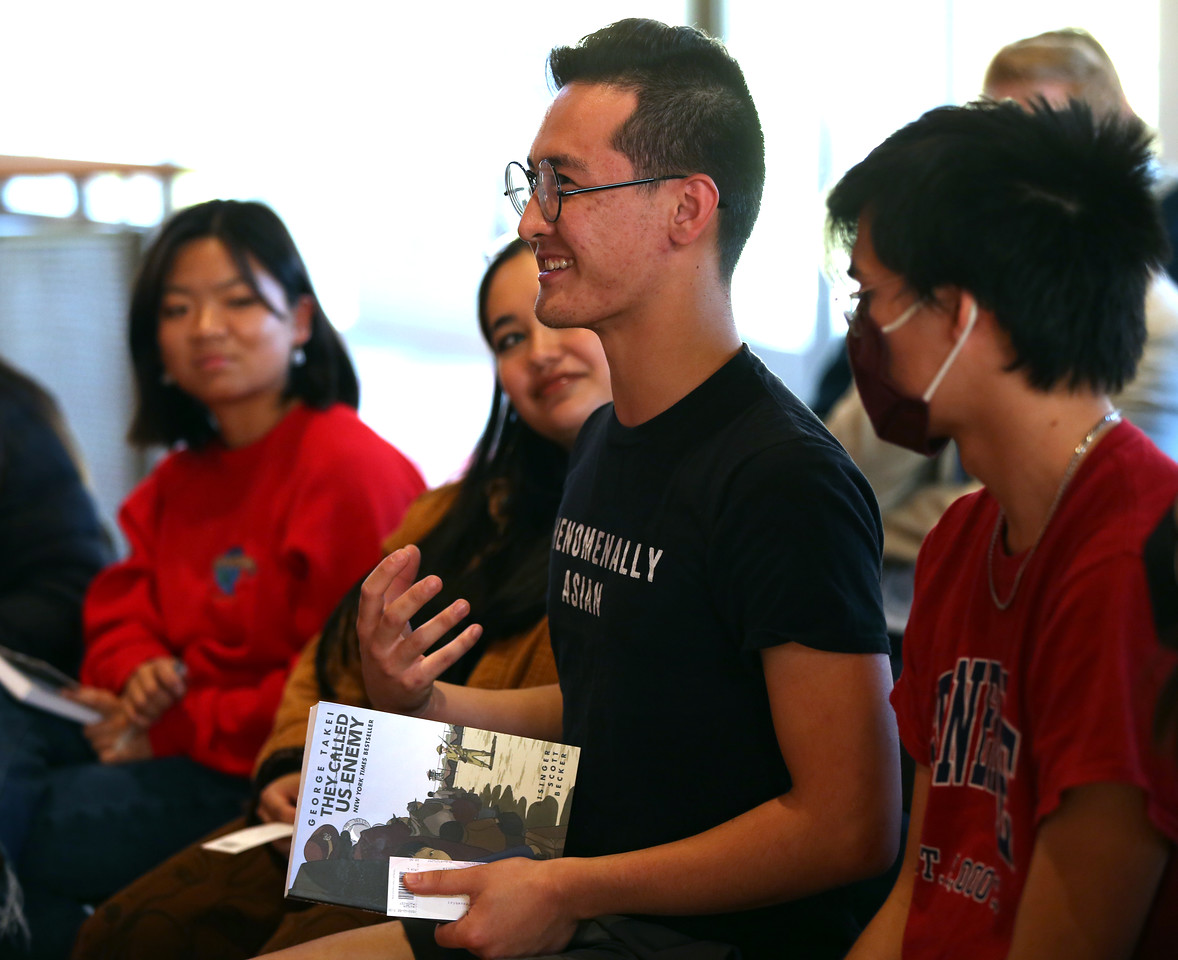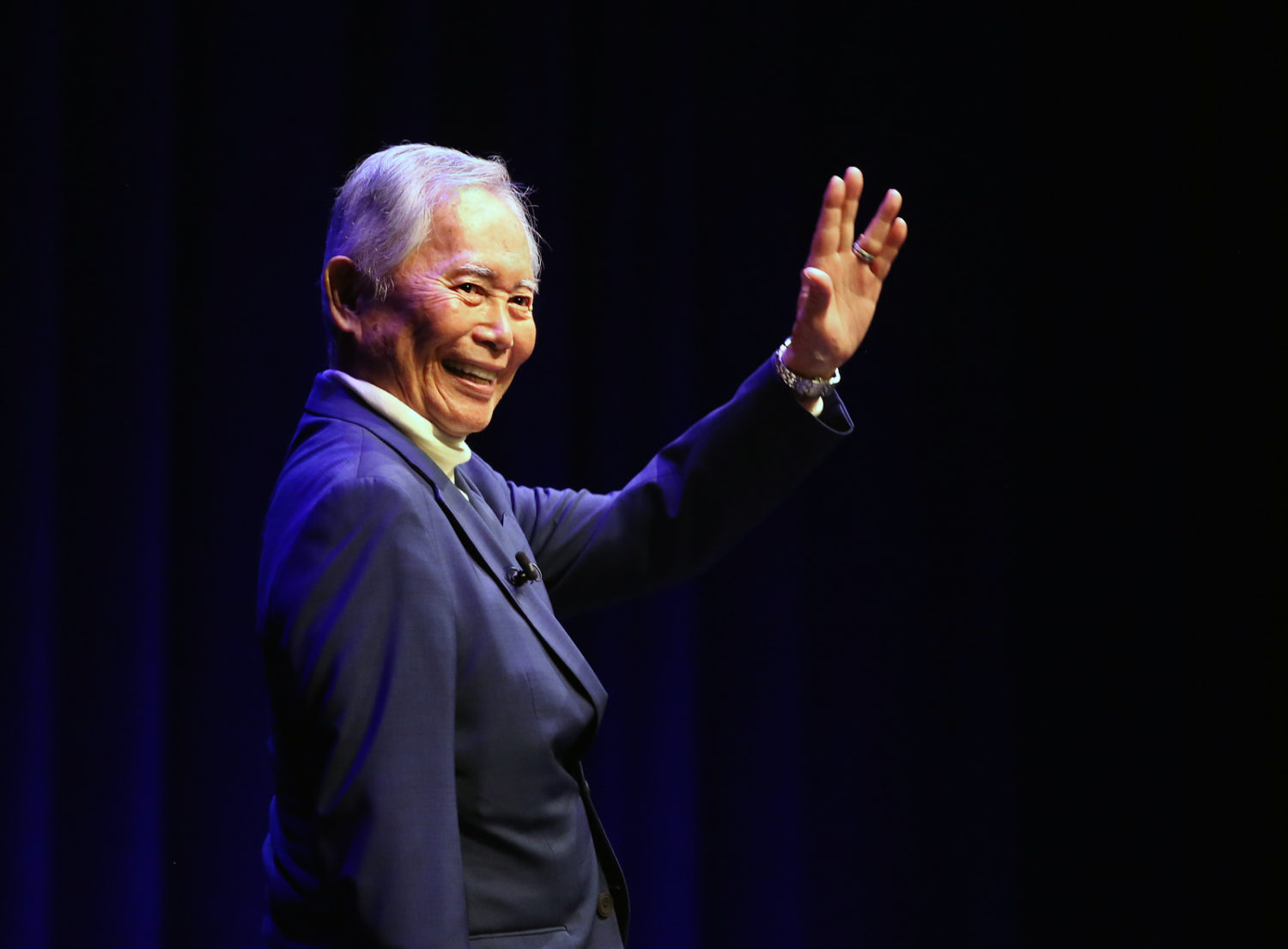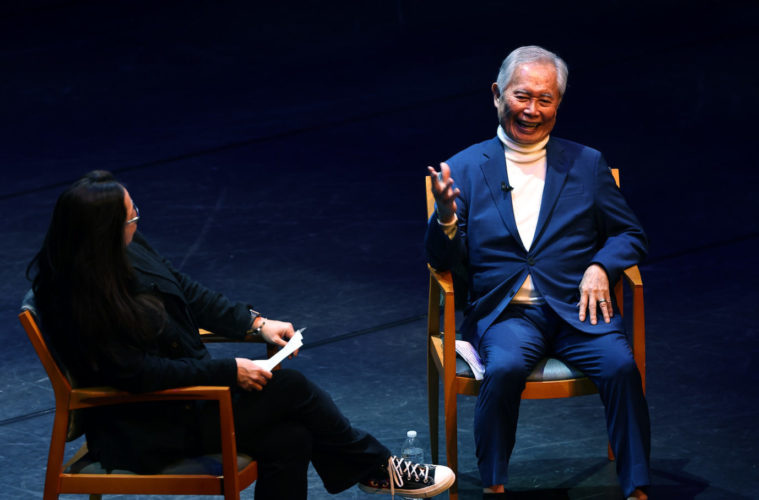On Wednesday, November 2nd, actor George Takei, known for his role as Captain Sulu in Star Trek, visited Chapman University’s campus to talk about his graphic novel, They Called Us Enemy, and his life as an actor, author, and activist.
George Takei spoke for a pre-show master class and then for a larger audience at Chapman’s Musco Center for the Arts to further promote the Engaging the World series. Both events were moderated by Wilkinson college dean, Dr. Stephanie Takaragawa, who will be developing the Asian American studies minor next fall semester. When introducing George Takei in the PreShow Q&A, Dr. Takaragawa stated, “Wilkinson College is committed to leading the conversation in our community on issues of humanity, unity, and justice. For the 2022-2023 school year, the theme is Engaging the World: Leading the Conversation in Ethnic Studies.”
This semester so far, Wilkinson College has hosted a poetry talk with Diana Khoi Nguyen, a discussion with Gerald Clarke, and other events that aligned with their theme of promoting ethnic studies. As a part of the series, over 300 students in Wilkinson College courses are required to read They Called Us Enemy, Takei’s graphic novel that touches upon Japanese incarceration, enemy rhetoric used against Japanese Americans during World War II, and everlasting trauma derived from Executive Order 9066.

PreShow Q&A Session
At the preshow master class, I was one of about 20 Chapman students and faculty members who had the opportunity to ask Takei questions involving Japanese Internment, activism, Star Trek, etc. One student had asked him about opportunities for Asian Americans in the arts, his experiences filming Star Trek, his theater productions inspired by Japanese incarceration, and what sparked his interest in becoming an actor.

Although students were there to ask Takei questions about his life, what stood out the most was Takei’s question to junior theater major Jerry Zou. As seen in the photo, Zou is wearing a t-shirt that says, “Phenomenally Asian” in bold, white font. During the Covid-19 pandemic, when anti-Asian hate and rhetoric became prevalent in the United States, Meena Harris, the CEO of Phenomenal, released “Phenomenally Asian” t-shirts in solidarity with Asian Americans.
Immediately, as Takei sat down in front of us, he caught a glimpse of Zou’s shirt and asked, “Why are you phenomenally Asian? Why are you proud to be Asian?” Zou said that he was in awe that a celebrity had asked him a question. Even after his encounter with Takei, he said the question continues to challenge him to think deeply about his “identity as an Asian theatre artist and scholar.” Even though the question was Zou’s to answer, it challenged me and other audience members to think about what makes us phenomenal.
An Evening With George Takei

Takei embodies what it means to be phenomenally Asian as he spoke about his life within the barbed wire fences from 1942-1945 and his “mental barbed wire fences.” For almost four decades, he was closeted because he feared coming out as gay would be detrimental to his career as an actor. Since it was already challenging to find opportunities as an Asian actor during his time, he feared that coming out would have significantly decreased his job opportunities. Therefore, he remained closeted until 2005 when California Gov. Arnold Schwarzenegger vetoed the same-sex marriage legislation. Not only did he become free from the barbed wire fences of the camps, but he was also able to free himself from the barbed wire fences society had forced him to put up.
During the Q&A portion of the second Musco talk, I was lucky to have my question chosen. I asked, “In They Called Us Enemy, you mentioned your conversations with your father about what had happened to your family during World War II. What was it like addressing Japanese Incarceration with your brother and sister?” While he and his father had open discussions about the camps and democracy, his brother, Henry, did not talk much about the camps. In contrast, his sister, Nancy Reiko, pursued an educator career to talk about Japanese Internment. Like Takei’s younger brother, many people refuse to talk about what happened due to shame and embarrassment. Still, Takei is phenomenal because he actively speaks about his experiences so that people may never forget.

George Takei’s Legacy
Although Takei has lived a remarkable life in the spotlight, the long-term effects of Japanese incarceration still affect him today. He recalls the tears falling down his mother’s cheeks as soldiers escorted his family out of their home and how this moment will forever be “seared” into his memory. By allowing himself to be vulnerable and utilizing his personal experiences, Takei actively battles racism and liberates groups of people. He has marched with Martin Luther King Jr., not only working as an activist for solely Asian American issues but also expressing his solidarity with other marginalized groups. He furthers the agenda of Asian American activism and other movements using his vast platform and loyal fanbase. He spreads awareness about a narrative the United States had attempted to “sweep under the rug.” As a community, Chapman University was lucky to have the opportunity to host George Takei and exemplify the significance of ethnic studies and multicultural education – serving as a strong start to the introduction of Chapman’s Asian American studies minor.
Photos by Karen Tapia/Greg Andersen
Advertising disclosure: We may receive compensation for some of the links in our stories. Thank you for supporting Irvine Weekly and our advertisers.

